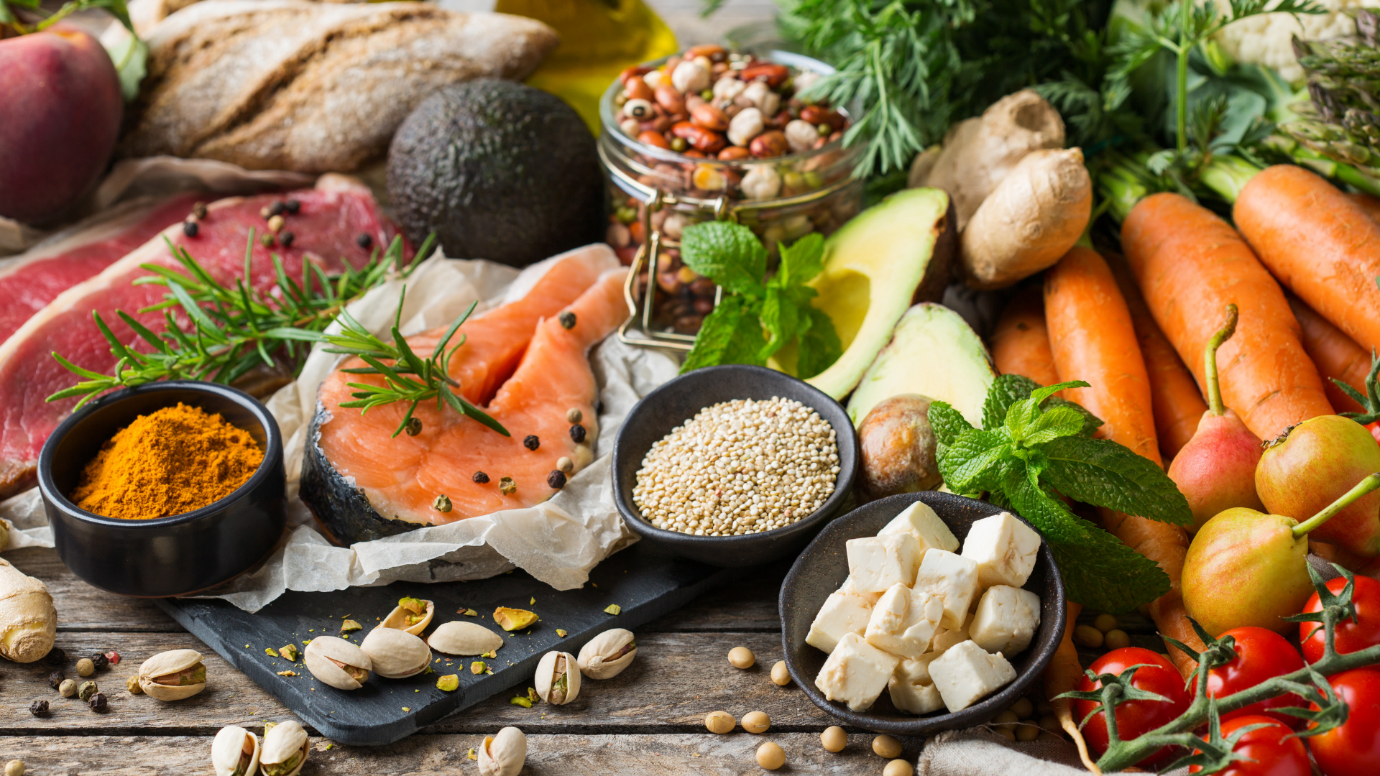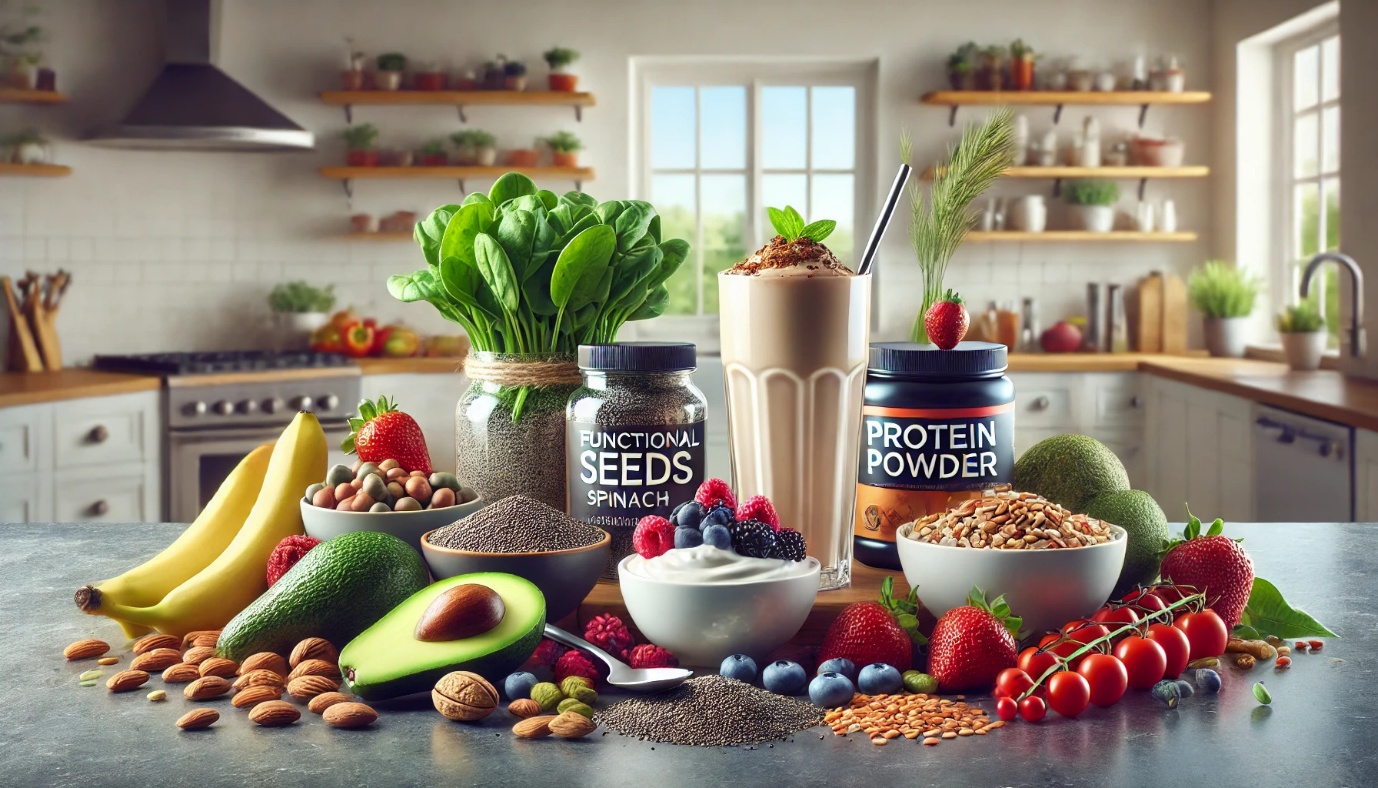Different diets in the fitness and nutrition sector promise quick outcomes mostly because they are very strict. However, is there another way of eating which focuses on general well-being and continuity of healthy practices?
Enter whole foods: an unconventional dietary concept which looks past just numbers (like calories) to promote an enduring sense of well-being along with physical fitness over time.
Discover for yourself why eating a greater amount of these natural products could make a real difference in how good you feel!
What are whole foods?
Lately, people have become very interested in whole foods, and you can understand why. These foods are very rich in essential nutrients, or simply put; they pack all that good stuff inside them. So, what exactly are whole foods?
In simple terms, while processed foods may have some nutritional value, whole foods are natural products that don’t have anything taken out of them. This means when you eat whole foods instead of processed ones, your body gets more of the good stuff like vitamins and minerals!
Adding more whole foods to your diet doesn’t entail getting rid of all processed options; rather, it’s about striking a balance that fits your lifestyle.
Why are whole foods a better choice for maintaining optimal health and fitness?
Your diet plays a crucial role if you are to meet your health and fitness objectives.
Even though there are numerous types of food that one could combine in their meal plan, eating whole food meals is most effective!
But why choose whole foods over processed foods? Here are a few good reasons:
a. Higher Nutrient Density
To begin with, whole foods have lots of nutrients per calorie.
This means they give you essential vitamins, minerals and antioxidants that are important for good health– which is vital for effective training and recovery.
Processed foods often don’t provide these key substances as they have been taken out during refinement.
b. Balanced Macronutrients
Secondly, whole foods supply a mix of protein, carbohydrate and fat that can help your performance (chicken breast, for example, offers a good hit of protein).
Plus they also deliver fiber so there’s something there to chew on as well; an important factor for muscle growth and sustained energy levels throughout the day.
c. Fullness
In addition, choosing whole foods can also assist with hunger control more effectively since they have innate components that make you feel full, as opposed to overly refined options.
Not to mention the potential long-term perks of steering clear of extra ingredients such as preservatives commonly found in packaged items!
d. Variety
Don’t overlook the importance of variety when it comes to whole fruits and vegetables— they provide an abundance of nutrients that work together synergistically to help our bodies absorb them better.
This means we can easily reach peak health by eating a mix of produce!
Health Benefits of a Whole-Food Diet
There are a slew of health benefits to a whole food diet. Some of these are:
1. Chronic Disease Prevention
Eating a whole-food diet promotes good health and decreases susceptibility to lifestyle diseases. While not entirely vegan, it prioritizes consumption of vegetables, fruits, and other related products because they improve one’s health.
Scientific research indicates that individuals on this kind of diet are 19% less likely to succumb to heart attack compared to those who don’t follow it; this is also evident in other cases like cancer, type 2 diabetes, as well as coronary heart diseases or strokes!
2. Weight Loss
If you switch from eating processed foods to whole foods, you could shed extra pounds. Why? Because many processed foods contain too much sugar and salt– for taste.
In fact, when researchers put people on an all-processed diet, they ended up eating 500 more calories a day (that’s a lot) and gaining an average of two pounds after just two weeks!
3. Improved GI Health
Whole grains, legumes, fruits, and vegetables when taken without processing have a lot of fiber, which is very important for good health and prosperity.
A grown up female should take more than 25g of dietary fiber every day while a male counterpart 38g or more.
Consuming whole foods high in fiber may help prevent long-term diseases, increase digestive health, and improve overall immunity.
4. Stronger Immune System
Incorporating high-fiber foods from natural sources into your diet can increase your daily fiber intake!
This has many benefits: It reduces the risk of chronic diseases and boosts immunity by improving gut health. For a healthier immune system overall, eat more whole foods!
Natural Supplements or Whole Foods— Which is better?

For individuals looking to maintain good health by getting adequate nutrients, two options are commonly considered: whole foods and natural supplements. But is one alternative superior?
In reality, there are advantages to each!
A balanced diet can benefit from the addition of natural supplements, which supply particular nutrients that might otherwise be consumed in insufficient amounts.
Moreover, they are convenient for people leading busy lives— who may use them to recover after exercising intensively.
Conversely, whole foods offer many vital nutrients necessary for good health.
Furthermore, certain supplements such as creatine and BCAAs can boost muscle mass and strength in conjunction with resistance training.
So don’t swap one for the other completely; use both to get maximum benefits for overall health— it’s a no-brainer!
The Bottom Line
To sum up, we looked at how important it is to eat whole foods if you want to be as fit as possible. But don’t forget, eating well is only part of living healthily!
In addition, it’s important to exercise regularly, manage stress and eat well. We should prioritize holistic wellness and include more whole foods in our diet if we want to feel good and stay healthy overall!





